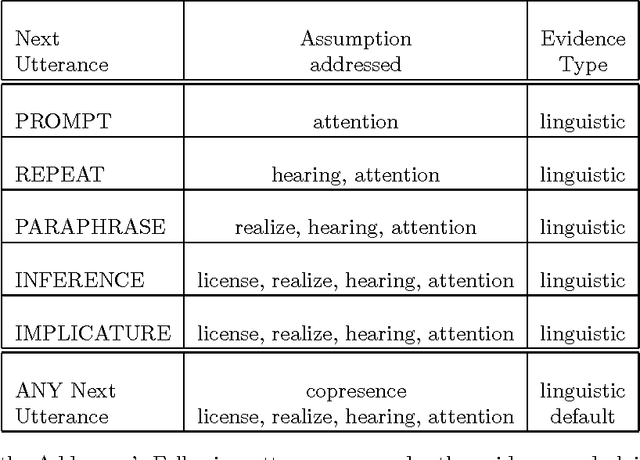Redundancy in Collaborative Dialogue
Paper and Code
Mar 16, 1995
In dialogues in which both agents are autonomous, each agent deliberates whether to accept or reject the contributions of the current speaker. A speaker cannot simply assume that a proposal or an assertion will be accepted. However, an examination of a corpus of naturally-occurring problem-solving dialogues shows that agents often do not explicitly indicate acceptance or rejection. Rather the speaker must infer whether the hearer understands and accepts the current contribution based on indirect evidence provided by the hearer's next dialogue contribution. In this paper, I propose a model of the role of informationally redundant utterances in providing evidence to support inferences about mutual understanding and acceptance. The model (1) requires a theory of mutual belief that supports mutual beliefs of various strengths; (2) explains the function of a class of informationally redundant utterances that cannot be explained by other accounts; and (3) contributes to a theory of dialogue by showing how mutual beliefs can be inferred in the absence of the master-slave assumption.
 Add to Chrome
Add to Chrome Add to Firefox
Add to Firefox Add to Edge
Add to Edge